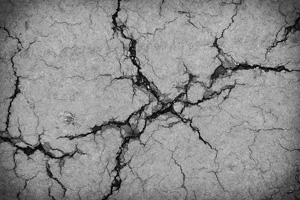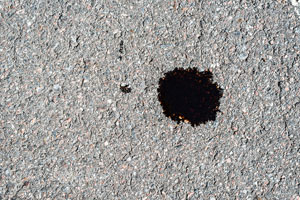Quality matters when hiring for a big project. Call a Best Pick now!
With all the pressure put on them by cars, outdoor activities, and even the weather, driveways will eventually crack. The trick to keeping these unavoidable cracks in check is to take care of them as soon as possible, and that’s where driveway maintenance comes in. The most common driveway materials—concrete and asphalt—are also the most susceptible to cracking, so even if your driveway has not yet begun to crack, it’s a good idea to heed the following driveway maintenance tips.
Repair Cracks

If left alone, even hairline cracks will ultimately develop into bigger, less manageable cracks, so it’s important to fill them in as quickly as possible. Always start by thoroughly cleaning the area surrounding the crack with hot, soapy water. Once it’s completely dry, vacuum out the crack so no dirt and debris interfere with the filling process. Asphalt driveway maintenance can generally be managed with a liquid or caulk filler, but fixing cracks in a concrete driveway tends to require mixing additional concrete, working it into the cracks, and smoothing it over the surface so the driveway remains level.
Fill Holes
Allowing cracks to go unchecked typically results in potholes and gaps in concrete or asphalt, and patching them is usually much more labor intensive. Begin by cleaning and vacuuming the hole and the area around it just as you would if it were a mere crack. For asphalt, you’ll then need to pack an asphalt patching material into the void until it overflows slightly. Next, drive your car over the patch until it’s even with the rest of the driveway. Like filling cracks, hole-related concrete driveway maintenance involves preparing a concrete mixture and smoothing it into the hole, but it’s recommended that the concrete be mixed with gravel for stability.
Remove Stains

While stains are usually unrelated to cracking, they’re unsightly and can make a driveway appear neglected. Most driveway stains are caused by oil and other automotive fluids. The longer they’re left to absorb into the driveway, the harder they are to get up, so it’s best to act fast. Hot water, soap, and a scrub brush with hard bristles should do the trick for small stains. If that doesn’t work or if you’re dealing with large, very oily stains, try a chemical degreaser, kitty litter, or Coke.
Clean and Seal the Driveway
When your asphalt or cement work is entirely dry, it’s time to clean the whole driveway, preferably with a pressure washer. Allow it to dry yet again, and keep an eye on the weather forecast for the next series of sunny days. As soon as you expect a solid three days of dry weather, minimize future damage by coating your driveway with a sealant according to the manufacturer’s directions.
Driveway maintenance needs to be performed regularly to keep it from becoming a major hassle. If you’re already past that point or if you would just prefer professional assistance, contact a local Best Pick company that specializes in driveway repair.
















